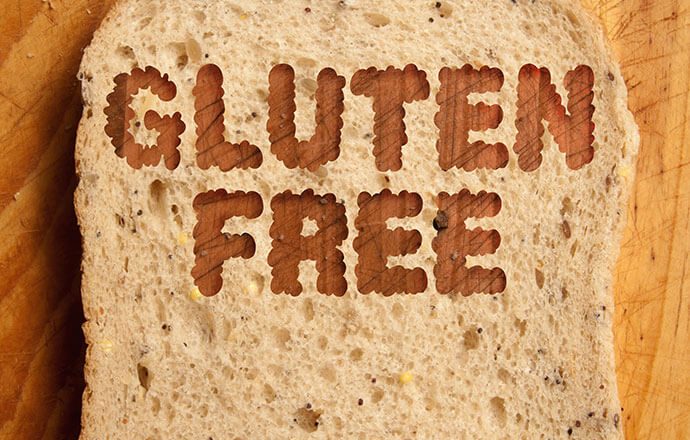What dietary changes do you need to consider when going ‘gluten-free’?
A gluten-free approach to eating is more than just the latest food fad, it can save lives. However, should we be more conscious of the reasons for our food choices, rather than following the most recent trend? People who suffer with coeliac disease, where eating gluten can cause serious damage to the digestive system and cause a severe inflammatory response in the body, have an obvious reason for excluding gluten from their diet.
Those of us who opt for a gluten-free diet for a healthier lifestyle should consider all of the facts before embarking on grain-free living. Here I will consider the pros and cons of going “gluten-free”, and what other dietary changes we should consider when going against the gluten-containing grains.
Wholegrains for a healthy heart
Some scientists have long considered that eating gluten was associated with an increased risk of heart disease. As the theory went, gluten was likely to cause an inflammatory response in the body which caused damage to the blood vessels leading to cardiac risks. However, a landmark study published in the British Medical Journal in 2017* concluded that gluten consumption was not linked to increased risk in heart disease, and moreover, avoidance of gluten in the diet may actually increase the risk of cardiac disease. The findings of the study suggested that asthose following a gluten-free diet had lesswholegrains in their diets (which are a key source of dietary fibre and promote heart health), their cardiac risk increased rather than declined when cutting out the grains. It is therefore important to ensure that additional dietary fibre is added to the diet when considering a gluten-free lifestyle. Good gluten-free grains which contain a high amount of fibre include quinoa, buckwheat, brown rice and millet. Berries, almonds, flaxseeds, peas and beans are also good grain-free high fibre foods.
Good gluten-free grains which contain a high amount of fibre include quinoa, buckwheat, brown rice and millet. Berries, almonds, flaxseeds, peas and beans are also good grain-free high fibre foods.
Nutrient deficiencies when narrowing the diet
Another factor to consider when restricting your diet to gluten-free is the potential nutrient deficiencies which might occur as a consequence. Although in those with coeliac disease gluten containing foods may actually cause anaemia, there is a risk for those without gluten-related intolerances that they may become deficient in iron and folic acid due to the decrease in wholegrains in the diet. Again, adding foods such as quinoa, pumpkin seeds, beans and lentils to a gluten-free diet ensure these vital nutrients are not missed.
Substitute with variety
Often those who opt for a gluten-free lifestyle turn to brown rice as an easy and readily available alternative grain. However, as with most things in life, moderation is key to maintaining a healthy equilibrium. Be inventive with a variety of other foods such as sweet potato, aubergine, parsnips, sorghum and green split peas which make a satisfying. alternative accompaniment with your meals. Cauliflower rice is also a popular substitute.
Is gluten-free best for me?
As well as coeliac disease, recent research proposes that some people have a condition referred to as ‘non-coeliac gluten sensitivity’ where they have an adverse reaction to gluten without the auto-antibodies present which are associated with coeliac disease. In addition, some studies have shown a link between gluten and intestinal permeability, due to gluten’s effect on the wall of the digestive tract. Intestinal permeability (also known as ‘leaky gut’) is now considered one of three crucial aspects in the onset of autoimmune conditions such as Hashimoto’s thyroiditis where the body attacks the thyroid gland. So, should you have a susceptibility to autoimmune disease, going gluten-free may be a wise option for you.
Now informed, you choose
Lifestyle choices are for you to decide, and whatever your health status, we all have the right to choose what diet suits us best, as long as we are properly informed in making that decision. If you do decide to go gluten-free, always consider the fibre levels in your diet to make sure you are getting the recommended daily dose, avoid gluten-free processed foods and eat a rainbow of fruits and vegetables to ensure that you are consuming a variety of vitamins and minerals every day. Going against the grain in life should be liberating not restricting, so rather than considering only what foods you have to cut out of your diet as part of going gluten-free, remember to also focus on the abundance of wholefoods that you can bring into your diet too no matter what you’ve lost!
Article written by Victoria Hamilton, Nutrisionist – www.victoriajainhamilton.com
Victoria is currently studying nutrition based in London, at the Institute of Optimum Nutrition and has a BScin Biochemistry with Immunology.










